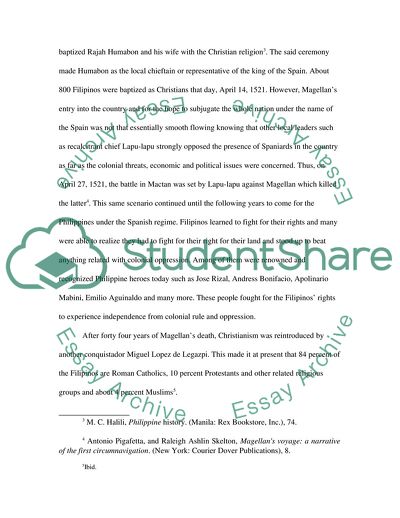Cite this document
(The Impact of Colonialism in the Philippines Essay Example | Topics and Well Written Essays - 2000 words, n.d.)
The Impact of Colonialism in the Philippines Essay Example | Topics and Well Written Essays - 2000 words. https://studentshare.org/history/1759120-analytic-interpretation-of-colonialism
The Impact of Colonialism in the Philippines Essay Example | Topics and Well Written Essays - 2000 words. https://studentshare.org/history/1759120-analytic-interpretation-of-colonialism
(The Impact of Colonialism in the Philippines Essay Example | Topics and Well Written Essays - 2000 Words)
The Impact of Colonialism in the Philippines Essay Example | Topics and Well Written Essays - 2000 Words. https://studentshare.org/history/1759120-analytic-interpretation-of-colonialism.
The Impact of Colonialism in the Philippines Essay Example | Topics and Well Written Essays - 2000 Words. https://studentshare.org/history/1759120-analytic-interpretation-of-colonialism.
“The Impact of Colonialism in the Philippines Essay Example | Topics and Well Written Essays - 2000 Words”. https://studentshare.org/history/1759120-analytic-interpretation-of-colonialism.


